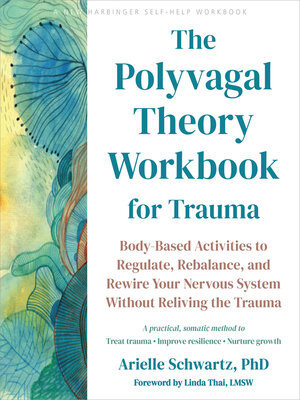The Polyvagal Theory Workbook for Trauma
ebook ∣ Body-Based Activities to Regulate, Rebalance, and Rewire Your Nervous System Without Reliving the Trauma
By Arielle Schwartz

Sign up to save your library
With an OverDrive account, you can save your favorite libraries for at-a-glance information about availability. Find out more about OverDrive accounts.
Find this title in Libby, the library reading app by OverDrive.



Search for a digital library with this title
Title found at these libraries:
| Library Name | Distance |
|---|---|
| Loading... |
Rewire your nervous system for lasting calm, connection, and resilience with cutting-edge, polyvagal theory-based activities.
Whether you've suffered a single traumatic experience or faced repeated difficult life events, you can be left feeling hypervigilant, irritable, and disconnected. Daily tasks like attending a work meeting or social gathering can feel overwhelming or even frightening. Most therapies for treating trauma require you to "revisit" your traumatic experience in potentially triggering ways. In this cutting-edge workbook, best-selling author and trauma expert Arielle Schwartz provides a practical, body-based method to help you treat your trauma symptoms—without reliving your trauma or being exposed to triggers.
The Polyvagal Theory Workbook for Trauma offers evidence-based activities to help you heal the effects of trauma, rewire your nervous system, and return to a state of balance and calm. You'll begin by getting to know your nervous system, including an exploration of polyvagal theory and the vagus nerve. You'll also learn soothing, body-based practices to help you rewire your nervous response, including rhythmic movements (EMDR and tapping), conscious breathing, mindful movement, and more. Self-reflection and journaling prompts will help you get the most out of every chapter, and a comprehensive collection of tools will help you stay on the path to trauma recovery.
You don't have to relive your trauma in order to heal. With this powerful workbook, you can take charge of your mental health, build resilience, and feel safer and more connected.







